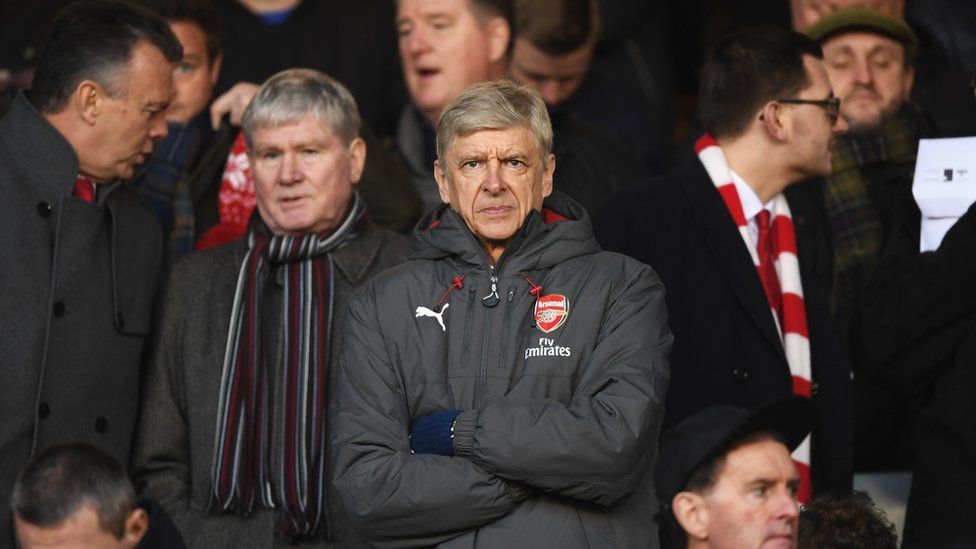Do football manager touchline bans affect results?
- Published

Arsenal manager Arsene Wenger is serving a three-match touchline ban for verbally abusing a referee and questioning his integrity.
The Reality Check team has been trying to establish whether touchline bans have any effect on a team's results.
A touchline ban means that a manager can only communicate with his playing team through his assistants, phoning in his decisions from up in the stands.
We made a list going back to August 2016 of all the league games in the top four English leagues where a manager has been subject to a touchline ban.
Each team's points-per-game average over a season allowed us to calculate how many points the team could have expected from each match.
We then compared this with what actually happened.
There was a tiny difference. The average points per game during touchline bans was 1.03 as opposed to 1.27 under normal circumstances, which could be due to chance.
Although the data do not show that touchline bans make a difference, some experts believe they are still likely to have an effect.
"It's hard to show what effect any one thing has in a sport with so many moving parts," says sports statistician Rob Mastrodomenico.
Over and out
The lack of direct communication between a manager and players during a ban creates two problems, according to sports psychologist Bradley Busch, who runs Inner Drive, a sports psychology training centre.
The first is the speed with which instructions can be relayed, and the second is psychological.
"It's a very fast-paced game - the picture on the pitch might look dramatically different to how it did one or two minutes before," he says. "And players tend to like consistency and certainty. If things are different it tends to stress people out.
"I'd be amazed if the win ratio wasn't lower. I'd almost bet my mortgage on it."
But some managers have pointed out that they get the best view from the stands, which can help with technical decisions.
"It is more talismanic than it is a genuine disadvantage," says psychologist Dr George Sik. "If a manager's been a naughty boy, it may affect the team's respect for the manager - or they may play better."
Half-time speeches
A lot of what the manager shouts from the touchline isn't actually audible to the players on the pitch.
Half-time is when a manager's character can make a difference. Team talks are the stuff of legend.
In the 1966 World Cup final, Alf Ramsey spoke to his team before extra time: "You've won it once. Now you'll have to go out there and win it again."
Perhaps it helped.
But Dr Sik is not convinced that this sort of thing goes on in the dressing room most weekends.
"We've all seen the films where the manager gives a team talk, invokes the memory of a dead player, the martial theme music starts up and that totally turns things round," he says. "It's pretty rare that that actually happens."
He adds that when he interviewed football managers for his book I Think I'll Manage: Football Managers Reveal the Tricks of Their Trade, not one of them gave an example of a half time speech that had changed the course of a match.
Repeat offenders
The list of touchline bans highlighted the fact that some managers are quite used to getting banned.
As well as Wenger, Manchester United boss Jose Mourinho, Southend United's Phil Brown, Barnsley's Paul Heckingbottom, Hartlepool's Craig Hignett and former Sheffield Wednesday manager Carlos Carvalhal all appeared more than once.
"Wenger speaks frequently to his players throughout the match and so has an important impact on the game" says Dr Marco Beato, a sports scientist at the University of Suffolk.
It's perhaps no coincidence that managers most prone to outbursts in the stadium are often the ones who most forcefully impose their personality on a team.